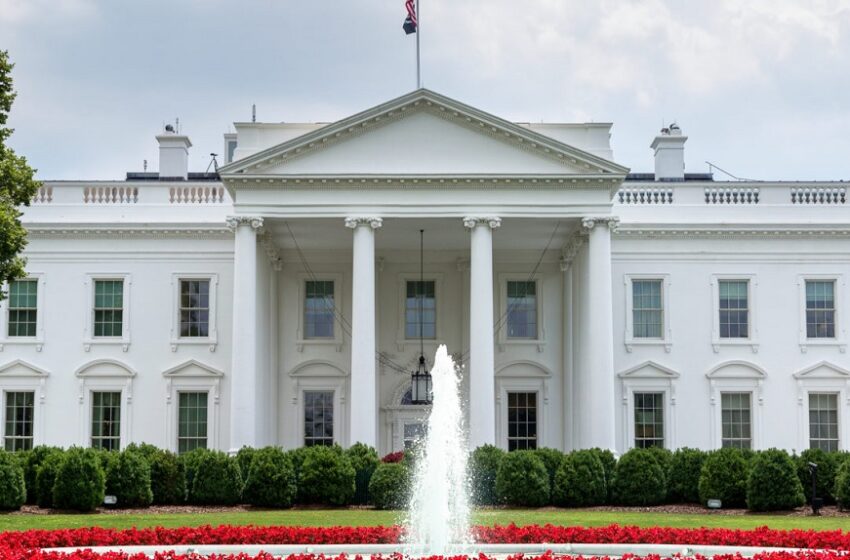61% Indian Americans intend to vote for Kamala Harris: Carnegie

Photo by Joyce N. Boghosian/White House
Six in ten (61%) Indian American registered voters intend to vote for Democratic presidential candidate Kamala Harris with one in three (32%)likely to vote for her Republican rival Donald Trump, according to a new Carnegie survey.
There has been a modest shift in the community’s preferences, with a greater share of respondents willing to vote for the former president since the last election four years ago, according to the 2024 Indian American Attitudes Survey by the Washington think tank.
This modest drift toward Trump appears to be driven by Indian American men, particularly young men born in the United States, according to the survey in partnership with research and analytics firm YouGov, days ahead of the Nov 5 election.
READ: Where do Indian Americans live? (October 26, 2020)
Overall, the diaspora views Harris and other Democratic politicians favorably while possessing more unfavorable views of leading Republicans. But the parties’ respective policy platforms, not personalities alone, shape the voting behavior of this increasingly influential demographic.
The survey in partnership with research and analytics firm YouGovdays ahead of the Nov 5 election reveals the political preferences and issues animating Indian Americans, now the second-largest immigrant group in the United States, many of which challenge conventional electoral wisdom
With more than 5.2 million people of Indian origin residing in the United States today, they have emerged as an important political actor thanks to the community’s rapid demographic growth, the close margins in modern presidential elections, and the diaspora’s remarkable professional success.
READ: Indian American voters tend to be Democratic: Pew Survey (June 2, 2023)
In 2024, there is another reason Indian Americans have been thrust into the limelight: the possibility that for the first time in the nation’s history a candidate of Indian heritage, vice president Kamala Harris, could occupy the highest office in the land, the survey notes.
Although Indian Americans have historically favored the Democratic Party in overwhelming numbers, the Republican Party has long felt that the community’s votes are up for grabs, touting the party’s policies on the economy, social issues, and stewardship of the US-India bilateral relationship, it says.
As the Nov 5 elections approach, Indian Americans remain solidly behind the Democratic Party, though there is a modest uptick in support for Trump, according to the survey.
READ: Election 2022: Indian American voters hold the balance of power (November 8, 2022)
The analysis is based on a second round of the IAAS, a nationally representative online survey of 714 Indian American citizens that was conducted between Sep 18 and Oct 15, 2024. The survey has an overall margin of error of +/- 3.7 percent.
Key findings:
Indian Americans remain committed to the Democratic Party, but their attachment has declined. About 47% of respondents identify as Democrats, down from 56% in2020. The share of Republican identifiers has held steady while the percentage of independents has grown. However, when considering independents who lean toward one party, the decline in Democratic respondents is perfectly offset by a rise in Republican identifiers. Despite this shift, the share of respondents who self-identify on the ideological left has grown since 2020.
There is a new, striking gender gap in voting preferences. About 67% of Indian American women intend to vote for Harris while 53% of men, a significantly smaller share, say they plan to vote for Harris.
About 22% of women intend to vote for Trump while a significantly larger share of men, 39%, plan to cast their ballots for him. When further disaggregated by age, this gender gap appears starkest with younger voters. In the cohort above the age of 40, more than 70% of women and 60% of men plan to vote for Harris. However, in the cohort under 40, 60% of women say they will vote for Harris, but men say they will vote for Harris and Trump in roughly equal proportions.
Indian Americans hold lukewarm views toward prominent Indian American Republicans. Respondents rate Indian American Republicans such as Nikki Haley, Vivek Ramaswamy, and Usha Vance (the wife of Republican vice presidential nominee JD Vance) unfavorably. However, there is evidence of asymmetric polarization: Democrats rate prominent Republicans worse than Republicans assess leading Democrats.
READ: Desis rally support for Kamala Harris in Georgia (October 9, 2024)
Abortion has emerged as a top-tier policy issue, especially for Democrats and women. Abortion and reproductive rights are a highly salient issue for Indian Americans this election year, ranking as their second-most-important policy concern (after inflation/prices and tied with the economy and jobs). Democrats and women are especially motivated by abortion this election cycle.
The Republican disadvantage with Indian Americans is rooted in policy.Although Indian Americans hold a dim view of many prominent Republican leaders, the party’s disadvantage with Indian Americans goes beyond personalities.
The data suggest that the Republican Party is out of sync with multiple policy positions held by members of the community. When Democrats are asked why they do not identify as Republicans, they cite the latter’s intolerance of minorities, its stance on abortion, and ties to Christian evangelicalism above all.
